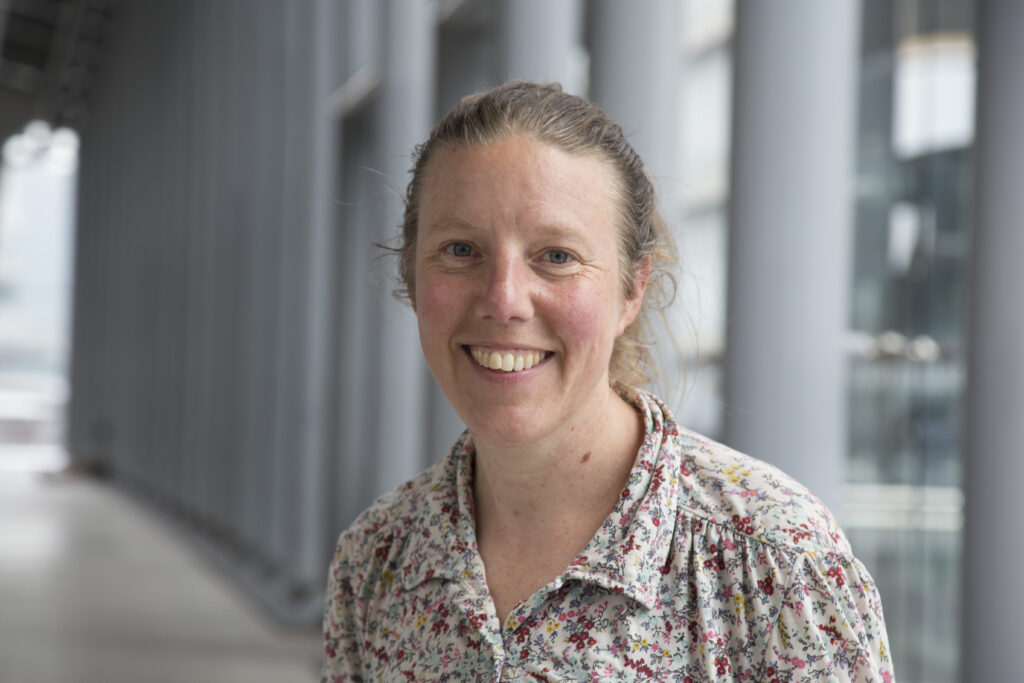‘Attending a course that deals with such a current issue is a unique opportunity to connect institutions and organisations’
Roos de Jonge, Curriculum Developer UMC Utrecht.
It’s virtually certain that we’ll face another pandemic. The current pandemic showed that we can only find a solution by working together. Sharing knowledge and experiences between organisations and sectors is crucial in order to effectively coordinate best practices. To help your organisation better prepare for a pandemic, you must possess knowledge from other disciplines as well. The alliance of TU/e, WUR, UU and UMC Utrecht have therefore created the course ‘Dealing with a Pandemic: an Interdisciplinary Approach’ for professionals and anyone who would like to learn from the experiences of the recent past.
Roos de Jonge, course coordinator: “The coronavirus pandemic hit us like a tidal wave, and is an excellent example of a health problem that you can’t get under control if you only think from within the boundaries of your own field of expertise. The ancient Greeks received a much broader education, and the first scientists of the Renaissance, like Leonardo da Vinci, were versed in every aspect of science. But we’re far more specialised today. The major wicked problems we face as a society, such as the coronavirus, sustainability, obesity, or sea level rise, are all problems that we can’t solve from our own field of expertise. These issues require a new form of collaboration, but also new ways of thinking and finding solutions.”

Interdisciplinary approach
The university is home to considerable knowledge and expertise in the area of interdisciplinarity. According to De Jonge, it’s vital for the university to transfer that to professionals as well. “Attending a course that deals with such a current issue is a unique opportunity to connect institutions and organisations. What makes this course special is that we combine the specific knowledge present in the four institutions. Models for forecasting and management from TU/e, system-analytic thinking from WUR, sociological, policy and administrative insights from UU, and medical knowledge from UMC Utrecht. And on the other hand, I think academia desperately needs the hands-on knowledge from the professional field to solve the big problems. The participants’ case studies and a glimpse into how the professional field experiences the problem can help academics move forward on finding solutions. I think it’s vital that we build a bridge between science and professional practice.”
Coronavirus pandemic as a case study
This course uses the coronavirus as a case study for a crisis management model. “When the pandemic hit, I suddenly had a lot of energy. The situation was exciting and a learning experience. I felt challenged by the situation”, recalls De Jonge. “Looking for solutions to problems like: how can we continue teaching our students? How can we stay in contact with one another? It made the world a lot smaller. I suddenly had people from different sectors calling in via Teams. That opened a lot of doors, and lowered the threshold for participation. The coronavirus pandemic clarified a lot of concepts that we’d always known about. Stockpiling toilet paper isn’t new, but it was suddenly in-your-face for everyone. From mask requirements to curfews: the government had always had the ability to implement them, but now it became reality.”
Reflection
The course offers the opportunity to look back on the recent past and consider what your organisation can retain, and what you can get rid of. Where are you in relation to other companies? Are you on the right track? What fits best with your organisation? How did you prepare your own organisation for an emergency? “When the next pandemic comes, you shouldn’t assume that you’ll have the situation under control within three weeks”, says De Jonge. “But with the information we provide, you’ll be able to draw up an action plan and guidelines for what’s in store. And there will be meet the expert sessions, discussion groups, round table discussions with experts. You’ll become familiar with the channels and paths to universities or other organisations. It’s a great starting point for collaboration with the university or other companies.”